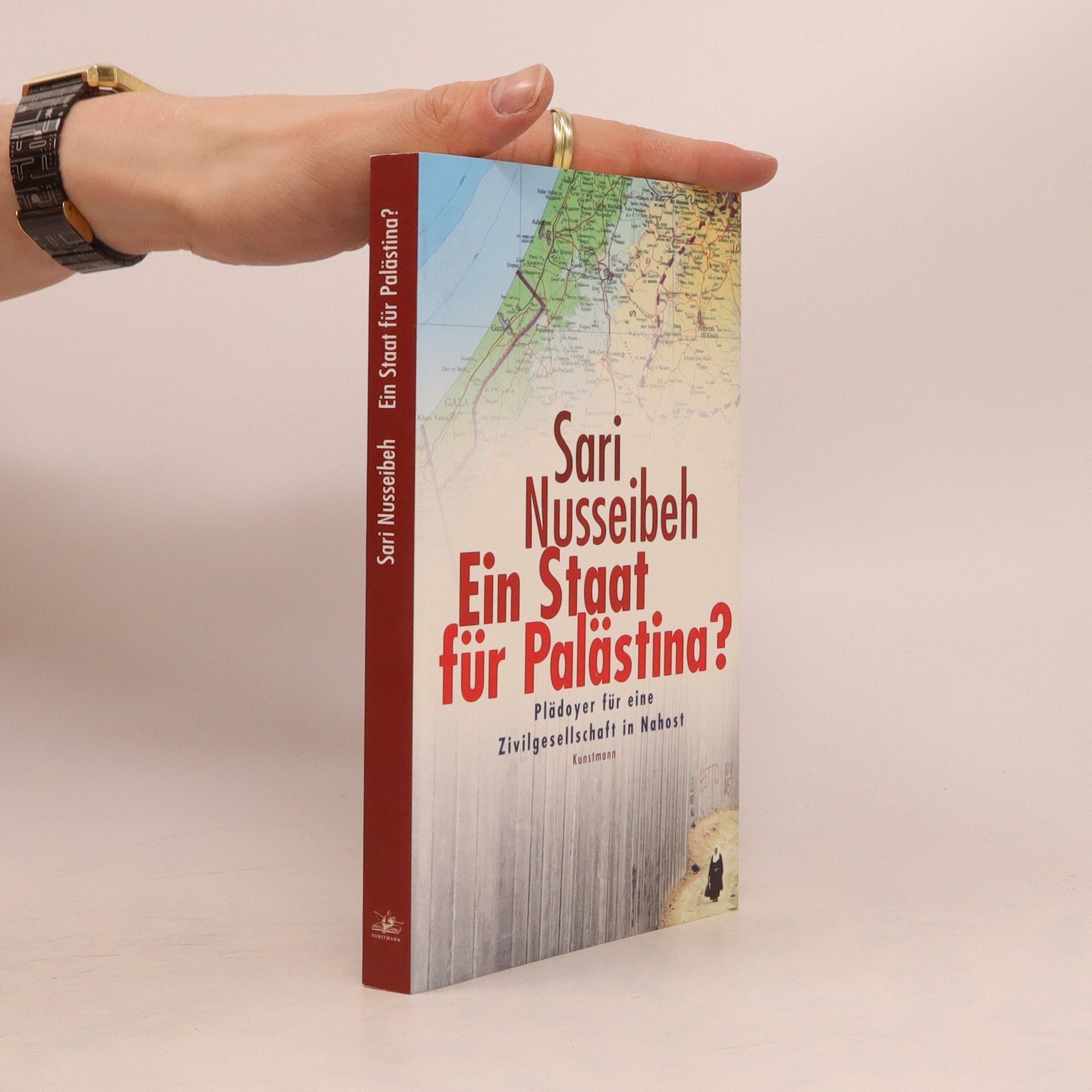Focusing on the philosophy of Ibn Sina, also known as Avicenna, this book reinterprets the contributions of the eleventh-century Persian Muslim philosopher. It highlights his rationalist approach and explores his significance in the context of medieval thought, offering fresh insights into his ideas and their impact on philosophy. Through a detailed examination, the book aims to reshape the understanding of Avicenna's legacy in both Eastern and Western intellectual traditions.
Sari Nusseibeh Knihy
Sari Nusseibeh je palestínsky profesor filozofie, ktorého dielo sa ponára do zložitých tém identity a politiky na Blízkom východe. Jeho písanie je poznačené hlbokým porozumením filozofickým tradíciám a zároveň silným zapojením do reality palestínskej spoločnosti. Nusseibeh skúma, ako historické naratívy a filozofické koncepty formujú súčasné politické reality a ako možno v tomto zložitom kontexte dosiahnuť mier. Jeho práca vyzýva čitateľov k zamysleniu nad vzájomným prepojením osobnej skúsenosti a širších spoločenských síl.




A New York Times Book Review Editors' ChoiceA teacher, a scholar, a philosopher, and an eyewitness to history, Sari Nusseibeh is one of our most urgent and articulate authorities on the conflict in the Middle East. From his time teaching side by side with Israelis at the Hebrew University through his appointment by Yasir Arafat to administer the Arab Jerusalem, he has held fast to the principles of freedom and equality for all, and his story dramatizes the consequences of war, partition, and terrorism as few other books have done. Once Upon a Country brings rare depth and compassion to the story of his country.
Es war einmal ein Land
- 525 stránok
- 19 hodin čítania
Der palästinensische Hochschullehrer und PLO-Diplomat Sari Nusseibeh, der im arabischen Teil Jerusalems aufwuchs, keine fünfzig Meter entfernt von dem Schriftsteller Amos Oz, in England studierte und nach dem Sechs-Tage-Krieg nach Hause zurückkehrte, ist ein Pendler zwischen den verfeindeten Seiten. In seiner Autobiographie erzählt er seine eigene Geschichte und die seines Volkes – und entwirft die Vision eines Landes, in dem Muslime, Juden und Christen harmonisch zusammenleben. „Ein feinsinniges, trauriges und humorvolles Erinnerungsbuch, das neues Licht auf die Tragödie des Israel-Palästina-Konflikts wirft, zugleich ein lebendiges Bild der palästinensischen Gesellschaft.“ Amos Oz
Abschied von der Zwei-Staaten-Lösung? Seit sechzig Jahren ist der Nahost-Konflikt ein Problem der Weltpolitik, das trotz zahlloser Lösungsvorschläge bis heute ungelöst ist – die aktuelle Situation scheint sogar verfahrener denn je. In einer solchen Situation, argumentiert Sari Nusseibeh, einer der bekanntesten palästinensischen Philosophen und seit Jahren aktiv in den Friedensprozess involviert, muss man über die eingefahrenen Muster hinausdenken. Um einen Raum zu öffnen, in dem der Frieden nicht nur denkbar ist, muss man sich die essentiellen Fragen neu stellen: Wie konnte es so weit kommen? Was zählt im Alltag der Menschen? Und wozu soll ein Staat überhaupt dienen? Sari Nusseibehs provokante Reflexion ist ein intellektuelles wie emotionales vermittelndes Plädoyer für eine humane Zivilgesellschaft in Nahost, für einen neuen Weg zum Frieden.